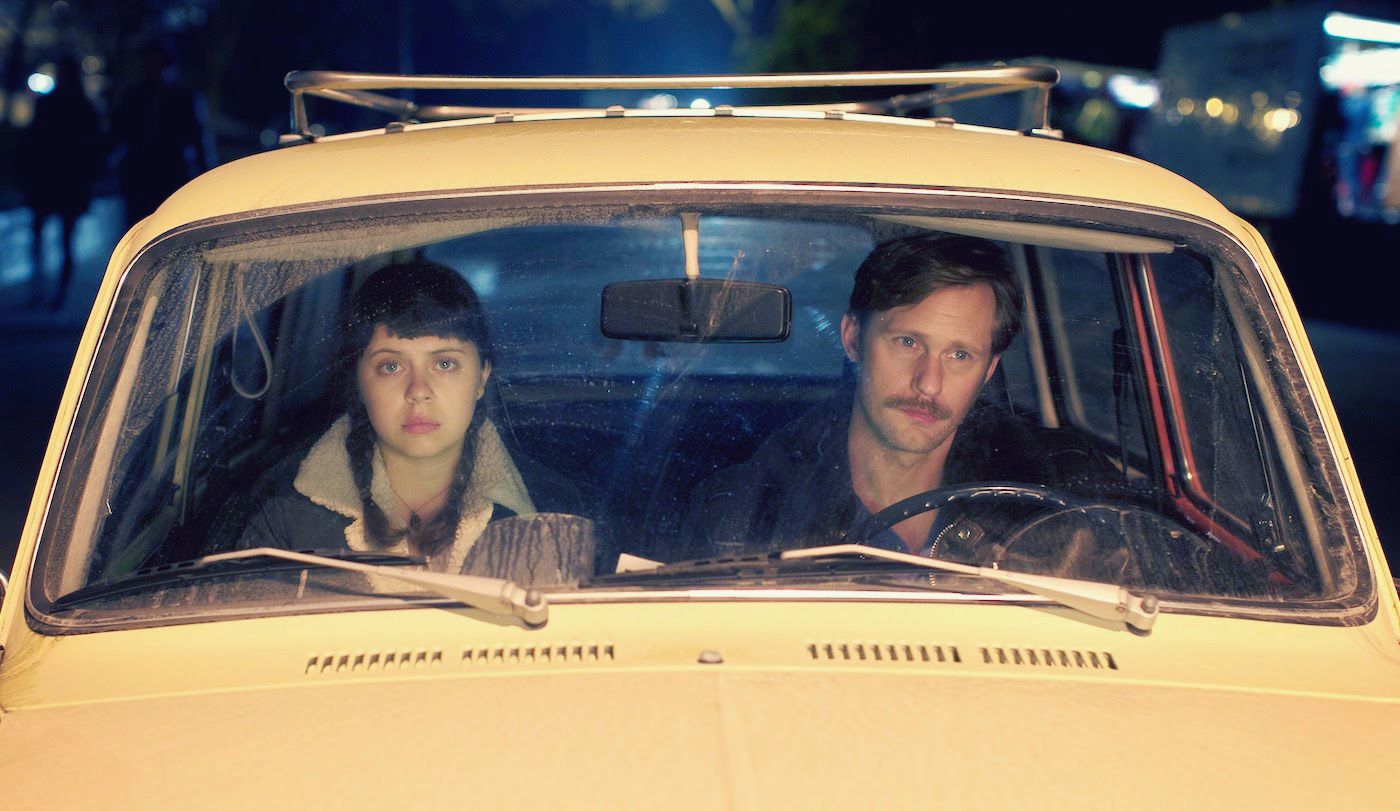I WATCHED “THE DIARY OF A TEENAGE GIRL” at a press screening about a month ago, and when I left the theater, I left feeling uncomfortable, anxious, and a little confused.
The film depicts a sexual relationship between a 15 year-old girl and her mother’s 35 year-old boyfriend; I suspect that if you’ve read nothing else about the movie you can probably appreciate why I might have had that response. However, if you have read anything else you’ll know that I’m in the minority, since most journalists have had quite the opposite reaction, decreeing the movie to be empowering, inspiring, and even uplifting. I would probably have doubted my own take on it — assumed it came from some personal issues rather than the fault of the filmmaking — if it wasn’t for the fact that I interviewed the author of the graphic novel on which it is based.
Phoebe Gloeckner created the character of Minnie to represent herself during a period of her teen life — 1970s San Francisco — in which she did have sex with her mother’s boyfriend, who goes by Monroe in both book and film. I read her book during the same week I saw the film, and when I got to the part where Minnie and Monroe start their relationship, I noted that the way that Gloeckner wrote the scene put very much of the power with Monroe. It was a difficult scene to read through. In the film, however, the scene is depicted as Minnie’s “sexual awakening” – a positive moment for her self-esteem and confidence. The film later condenses the fallout of Minnie’s experience into a sort of adventurous dalliance –when, in reality, it was a prolonged descent into drugs and the darker elements of that era’s hippie lifestyle. The film’s conclusion is a fist-pump of third-wave feminist self-congratulatory celebration, while Gloeckner’s book ends with Minnie getting high on meth “for the last time” and attempting to gain a sure footing in an accidental meeting with Monroe after months apart.
Essentially, the film Hollywood-izes Gloeckner’s story for a simpler and more palatable happy ending, which is certainly not unusual when it comes to book-to-film adaptations. In this case, though, it’s reprehensible. Why would we want to make this relationship set-up more palatable? Just take a look at the headlines regarding the British pedophile ring of establishment figures — in areas from government to media — that was preying on hundreds of young children during the same time period the film depicts. I couldn’t get that context out of my mind while I was watching the movie. Perhaps many of those young girls felt somewhat like Minnie when they were 15 and approached by their favorite actor or DJ. Some 40 years later, they might see the situation for what it was.
Gloeckner’s book got an updated reissue by North Atlantic Books last month, and I can only hope the film inspires more women to read this truly subversive and revolutionary work. During our interview, Gloeckner said:
“If I had made the movie myself it would have been as dark as hell. It would not have spared any punches. In some cases (the director) gave Minnie more agency. Minnie’s back story in my other book, The Child’s Life, complicates things, because she was, in many ways, psychologically affected by her upbringing. She was kind of hyper-sexualized as a result. That’s not really addressed in the movie, it’s just seen as teenage sexuality and that’s not exactly right. It kind of makes me feel a little weird to think that people will be seeing the movie with the perspective of it being about empowering female sexuality.
Minnie’s family has no center and she has no parental figures at all. She just wanted someone to love her and take care of her, like you’re supposed to take care of kids. That doesn’t come through for me in the movie, the pain that’s behind all that – the looking for love, confusing love with sex; that is all so difficult. I think this film, in how it uncomplicates Minnie’s sexuality, almost encourages that kind of behavior (from parental figures).”
All the signs of the topsy-turvy world of liberal feminism are on display in the way this film has been covered, with little to no mention of the book or its real-life inspiration. “A surprisingly empowering story of teenage sexual awakening,” says The Guardian. A film that is “honest about female sexuality” gushes The Independent. In reaction to the NC-17 rating attributed to the film, a producer of the film said, “The film explores female sexuality with boldness and honesty in an unexploitative manner. In an age where young women are still continually being sexualised and objectified we feel The Diary of a Teenage Girl sends a very positive, reassuring message to young girls about female sexuality and body image.” Really?
First of all, it’s not “honest,” because it does not represent the experience of the woman who inspired and originated the character of Minnie. I’d hope we might question whether it is positive and reassuring to “young girls” to tell them that it’s okay when your mother’s boyfriend 20 years your senior wants to and then does have sex with you. By suggesting that any criticism of the handling of the film’s storyline would come from the side of judging Minnie for her sexuality rather than judging Monroe for his actions is pure spin. The problem with the film isn’t that Minnie has sex and likes sex at 15 years old, it’s that it isn’t honest about what it means when the sex that’s being had is with a 35-year-old in a position of power within your family. It’s absurd that during the same week we can see a whole lot of hand-wringing over Woody Allen and Soon-Yi Previn’s relationship from Salon et al off the back of a NPR interview with the writer-director. Here is a relationship that began in Soon-Yi’s mid-teens with a 35-year age gap, but here it is assumed manipulative and abusive. Most of the writers doing the hand-wringing seem to believe it wouldn’t matter a jot in regards to their opinion on the relationship how Soon-Yi felt then or feels now about her “choice” to have sex with her mother’s boyfriend.
Flavorwire reported to be happy to see a film that did not suggest that sex with your mother’s boyfriend at 15 is “an ordeal from which (you) will never recover.” Certainly, Phoebe was not ruined by the experience in that she is now alive, well, and successful, and yet this does not mean that the experience was purely positive and empowering, either. When I read that the filmmakers are disgusted by the NC-17 rating and the apparent desire to “protect the innocence” of teenagers, I have to wonder why they are not more concerned with protecting teenage girls, not from films, but from older men in positions of power. We can speculate on whether the depiction of a teenager’s thoughts and feelings in this specific situation is honest or not, but for most of us who have not gone through it, this remains speculation. All we can know if that the film is not an honest depiction of this reality-based relationship and its consequences. The filmmakers say they are proud to make a film that is without “judgment,” but that does not mean it is without an agenda or message.
Phoebe asked me during our interview: “If they see the movie and then read the book – will they be horrified by the book?” I would hope “they” would be horrified by the movie.
To read Holly’s full interview with Phoebe Gloeckner, author of The Diary of a Teenage Girl, check it out over at Issue Magazine.

















